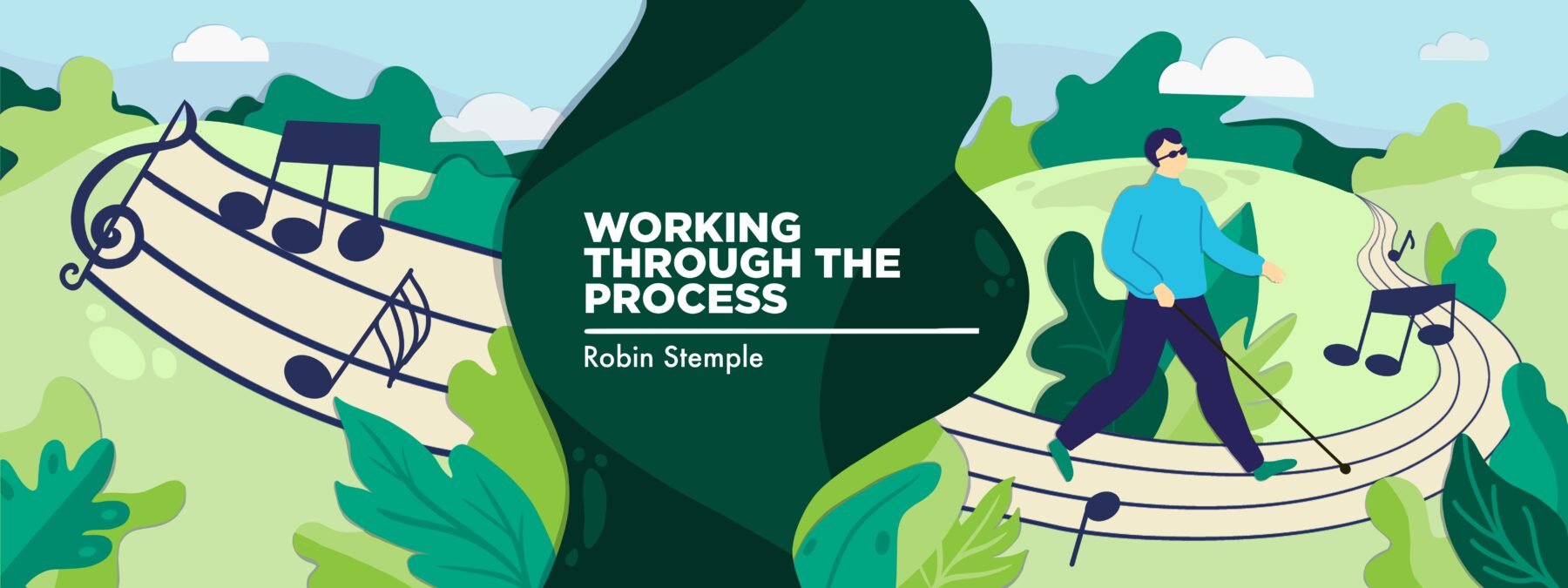As I grow older with FSHD, I’m thinking about my legacy
A new year and a birthday prompt reflection for this columnist

I just turned 66. I’m not sure if it was my birthday, the calendar changing, or perhaps the fact that the men in my family don’t live especially long lives, but I’ve really been thinking about what kind of legacy I’ll leave behind when I pass from this world to the next.
My dad, who died in 1996, has especially been in my thoughts. Dad was a lifelong musician. He started his music career as “little Donald,” performing on WHJB Radio when he was just 10 years old. Dad played professionally until his early 60s, when it just got to be too much for him. He was never officially diagnosed, but I’m sure muscle weakness from facioscapulohumeral muscular dystrophy (FSHD) played a part.
Dad insisted that my brothers and I all play music. My brother Ron became a music teacher, while Tim continues to operate Stemple Music, where he has repaired band instruments for more than 40 years. They both play professionally as well. After three years of fighting my dad as he tried to teach me to play the guitar, I became the family keyboard player. I think this was in God’s plan; since my arms don’t go up, I doubt I’d be playing guitar at this point.
Dad also gave guitar lessons in our basement for many years, passing his love of music along to hundreds of students. Dad’s students included his grandkids, who continue to love music to this day.
One of Dad’s last “leave behinds” were home recordings of him playing and singing some of his favorite songs. The recording quality isn’t great, and, like mine, his voice was weakened by FSHD, but I listen to them every once in a while. They remind me of his love for music and how much he wanted to pass it on as part of his legacy.
Legacies won’t always be grandiose
I’m hoping to live well past 69, the age Dad was when he died. That’s out of my control, so I’m dwelling on what kind of legacy I’ll be leaving behind.
I’m not poor, but I’m certainly far from rich. I won’t be leaving tons of money to my children or to charity. They won’t be naming any buildings after me when I’m gone.
(Actually, a fun fact is that I had a wing of a building named after me years ago when I directed a small nonprofit that served the blind and visually impaired throughout Somerset County, Pennsylvania. We merged with a larger organization, and the building was sold. I’m not sure, but I think the sign from the building ended up in our basement in Shanksville. It didn’t make the move to Pittsburgh with us.)
When most of us think of a legacy, we think of a large sum of money or other property that our children, or perhaps a charity, will inherit when we pass.
Small actions, lasting legacy
In truth, I believe we build our legacy over a lifetime of small actions.
Every time we interact with the world, we’re building our legacy. A simple smile that cheers someone up changes the world in a positive way. Abusing or bullying someone also leaves a legacy, just not in a good way.
So what do I want to leave behind? What kind of difference have I made in this world so far? With FSHD, could I have done more? What could I have done differently? Is it too late to move things in a better direction?
I think I’ve passed along the right values to my kids. I always told them when they were growing up that I just wanted them to be nice. They are.
I hope that my work with the blind and visually impaired made a lasting difference. I think the music I’ve played for nursing homes, churches, and other facilities has lifted spirits. I’m hoping the music I distributed on CDs during the pandemic helped people get through what seemed like an impossible situation. Hopefully, they’ll be playing those recordings long after I’m gone.
Most recently, the Shanksville community put together Shanksville Salutes, a website honoring local veterans. I feel honored that they’re using music I recorded as background while photos of the vets scroll across the screen.
I believe the work I do with the Disabilities Ministries board of the United Church of Christ will make a difference for years to come. The board works with churches to provide accommodation so all can come and worship, regardless of disability.
I hope simple things like my smile or words of encouragement will be things people remember about me. Finally, I’m hoping that by sharing my FSHD story, I’ve made a lasting, positive difference for my readers. I wish each of you a blessed and happy 2024.
Note: Muscular Dystrophy News Today is strictly a news and information website about the disease. It does not provide medical advice, diagnosis, or treatment. This content is not intended to be a substitute for professional medical advice, diagnosis, or treatment. Always seek the advice of your physician or another qualified health provider with any questions you may have regarding a medical condition. Never disregard professional medical advice or delay in seeking it because of something you have read on this website. The opinions expressed in this column are not those of Muscular Dystrophy News or its parent company, Bionews, and are intended to spark discussion about issues pertaining to muscular dystrophy.







Leave a comment
Fill in the required fields to post. Your email address will not be published.